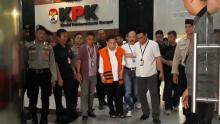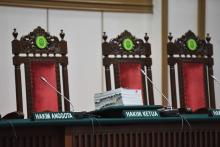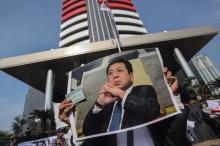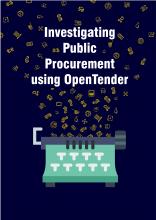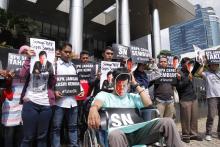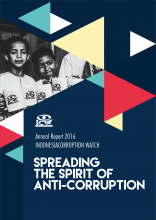The Commission for the Eradication of Corruption (KPK) finally detained Chairman of the House of Representatives, Setya Novanto (SN) in KPK’s detention center at midnight on 19 November 2017. This arrest was finally made although SN’s arrest was postponed due to his being treated in Jakarta’s Cipto Mangunkusumo hospital due to a traffic accident.
The Supreme Court is now on the spotlight, again. The national selection of judges in 2017 has been smeared with the issue of extortion of the selection participants. The amount is astounding, between IDR 600 to 650 million, which has to be paid by the participants to the official suspected as a court employee, in order to pass the selection. The delay in the announcement of the selection, from 31 October to 3 November 2017, was also suspected to be related to the machinations to pass the participants who have paid the amount.
After again naming Setya Novanto as suspect in the case of corruption of e-KTP procurement, the Corruption Eradication Commission (KPK) is encouraged to move quickly. The Commission is expected to submit the case to the court and have Novanto detained.
The internal dispute in the KPK goes on. Following the clash between KPK Director of Investigation Aris Budiman and Senior Investigator Novel Baswedan, ending with Aris being reported to the police, KPK’s leadership continue to have differing opinions on the sanction to be given to Aris on his indisciplinary action, having appeared in front of the Parliament’s Inquiry Committee. Finally, several KPK investigators from the police have been found to delete, damage or eliminate evidence during the handling of a case involving a businessman.
It is generally agreed that to eradicate corruption, a state needs to adopt information technology (IT) in managing and providing public service to the citizens. Nowadays, IT-based approaches to improve the quality of governance are widely used in various states. The speedy growth of the IT industry has contributed to the development of the application of IT in the public sector.
The discourse to create the Anti-Corruption Special Detachment by the Indonesian National Police (Polri) has caused a polemic. Many parties, from anti-corruption activists, civil society organizations, academics to Vice-President Jusuf Kalla, have expressed their opposition.
The arrest of the Chief Judge of the North Sulawesi High Court, Sudi Wardono, by the Corruption Eradication Commission adds to the long list of judges arrested in corruption cases. It also shows that the attempt to clean up the mafia in the judiciary is still an ongoing process. This happens despite the Supreme Court trying hard to gain public trust in these last few years.
It has been a fortnight since Judge Cepi Iskandar granted Setya Novanto’s (SN) pretrial motion. SN’s status as suspect in the e-KTP corruption case resulting in a state loss of IDR 2.3 trillion has been revoked since the granting of the pretrial decision. However, the decision did not simply make the suspicion of corruption involving the chairman of the House of Representatives go away.
Since the Commission for the Eradication of Corruption (KPK) was founded in 2003, attempts to weaken this institution has been made many times, in many ways. One of the more prominent attempts is through the legislative process, by demanding a revision to the Law No. 30 of 2002 (Revision of KPK Law).
The attempt to revise the KPK Law has begun in 2011. The attempt became more aggressively done by the government and the Parliament in 2015. In that year, discussions on the revision of the Law were done in June, October and December.


